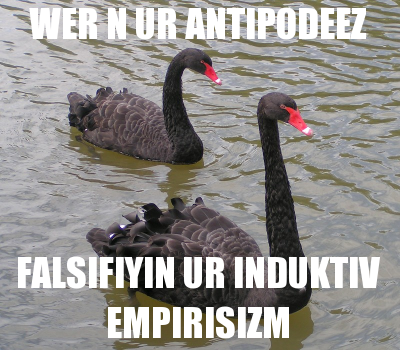Why everyone should learn a little History and Philosophy.
 I’m all for breaking down the arbitrary and artificial barriers between ‘subjects’. I can remember having no idea what to specialise in at age 16 (and so hedging my bets with Maths and Physics on the one hand, and English Literature and History on the other). Despite this wish to see more osmosis between subject areas, the knowledge, skills and understanding that come under the headings ‘History’ and ‘Philosophy’ I believe to be especially important.
I’m all for breaking down the arbitrary and artificial barriers between ‘subjects’. I can remember having no idea what to specialise in at age 16 (and so hedging my bets with Maths and Physics on the one hand, and English Literature and History on the other). Despite this wish to see more osmosis between subject areas, the knowledge, skills and understanding that come under the headings ‘History’ and ‘Philosophy’ I believe to be especially important.
OK, so I’ve got degrees in both of them but their erosion, I believe, cuts us off from the past and alternative ways of thinking about the world around us. And that’s not a good thing.
I’ve just finished reading Tom Holland’s excellent, eloquent Millennium: the end of the world and the forging of Christendom and have just embarked upon Jared Diamond’s ambitious Collapse: how societies choose to fail or survive.* Diamond writes:
Past people were neither ignorant bad managers who deserved to be exterminated or dispossessed, nor all-knowing conscientious environmentalists who solved problems we can’t solve today. They were people like us, facing problems broadly similar to those we now face. They were prone either to succeed or to fail, depending on circumstances similar to those making us prone to succeed or fail today. Yes, there are differences between the situation we face today and that faced by past peoples, but there are enough similarities for us to be able to learn from the past.
It’s surprising, and encouraging, that many of those interested in educational technology have a background in the Humanities; the latter lends, I believe, a critical element that underpins a wider digital literacy.
I’ll be speaking several times this year on ‘The Essential Elements of Digital Literacy’. You can be sure that I’ll be stressing the importance of the criticality developed in the Humanities subjects over some of the shortsighted technological determinism that sometimes rears it’s ugly head online. I can say with some confidence that any time you wonder how Device X ‘will change education’ you’ve got it backwards.
So, long live History and Philosophy! (although not necessarily as discrete subject areas)**
Image CC BY-NC-SA mr lynch
*A good deal of my reading comes from serendipitous finds in secondhand bookshops. 🙂
**If you’re wondering, the choice of image for this post comes from it being one of the best tests I’ve found so far for the reading/understanding element of ‘digital literacy’. Why? Well, because you would have to understand:
- The concept of a meme
- That this is a derivation of a meme calledlolcats
- How to search to find out what it’s referring to
- Which websites to visit for reliable information on this (which to trust)

I know very little about philosophy, and my discipline of psych is grounded in it! Part of a series on the History of Psychology, for the students (and myself) is highlight the links between philosophy, psych and critical thinking literacies. I look forward to your posts linking with digital literacies.
In that case, if you ever come across Daniel Robinson’s histories of Philosophy and Psychology that he did for The Teaching Company, I suggest you buy them straight away! Masterful.